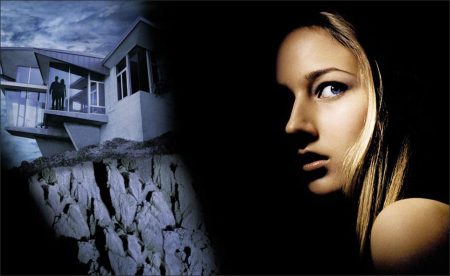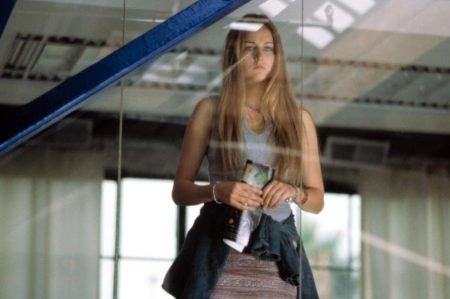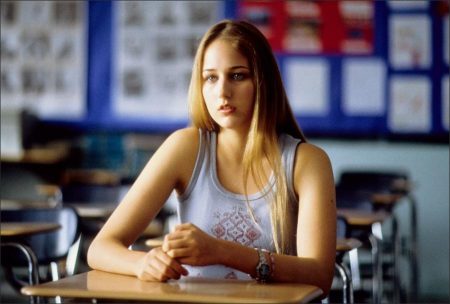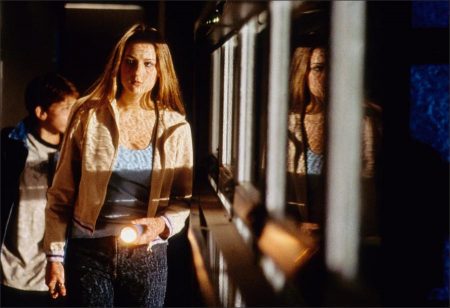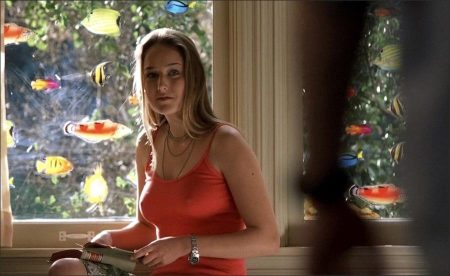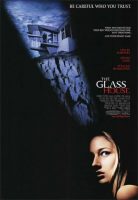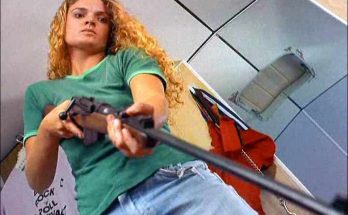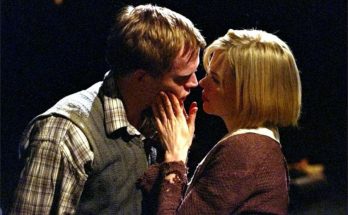Taglines: Be careful who you trust.
The Glass House movie storyline. When Ruby Baker’s parents are killed in a car accident, she and her brother, Rhett, must travel to Malibu, to live with Terrence and Erin Glass, their former neighbors. At first, all seems well. Ruby is making new friends at school and Rhett is getting more video games and flashy toys than he’s ever had in his life. When Ruby speaks to her family’s estate lawyer, he tells her that her parents have left Rhett and her $4 million. Suddenly, Ruby begins to notice odd behavior from Terry and Erin.
The Glass House is a 2001 American psychological mystery thriller film directed by Daniel Sackheim and written by Wesley Strick. The film stars Leelee Sobieski, Stellan Skarsgård, Diane Lane, Bruce Dern, Kathy Baker, Trevor Morgan and Chris Noth. The film received generally negative reviews and was a box office bomb, grossing only $18,150,259 domestically and $5,469,350 overseas, grossing a total of $23,619,609 on a $30 million production budget. The main reason cited for the financial failure of the film was the fact that the film was released 3 days after the September 11 attacks.
The film was released on VHS and DVD on January 2, 2002. A Blu-ray version of the film has yet to be released. The original cut of the film was reported to be 180 minutes long, with 74 minutes worth of footage missing from the theatrical cut. Kip Pardue played Leelee Sobieski’s love interest in the original cut though all of his scenes ended up on the cutting room floor. Of all the deleted footage, only two scenes managed to survive. They are included on the DVD as deleted scenes (listed below):
Film Review for The Glass House
There is one intentionally sort-of funny line in ”The Glass House,” a thriller that does not mean to be comical but that inspires more howls of laughter than shivers of dread. A gaggle of San Fernando Valley teenagers emerge from a showing of a slasher flick called ”Prom Nightmare.”
”That actress was no Meryl Streep,” one of them comments. ”Who’s Meryl Streep?” another asks. ”She’s like Katie Holmes to our parents.” Yes, exactly — the sexy young star of a fading teenage prime-time soap opera.
Leelee Sobieski, the star of this inflated exercise in B-picture absurdity, has the blond hair, pointy nose and wide cheeks that might suggest a younger Ms. Streep, but ”The Glass House” offers about as many opportunities for persuasive acting as ”Prom Nightmare.” Ms. Sobieski plays Ruby Baker, a 16-year-old whose parents are killed in a car accident.
She and her younger brother are sent to live with Terry and Erin Glass (Stellan Skarsgard and Diane Lane) in a very literal-minded metaphorical house made of glass. ”It’s perfect for you,” the real estate agent must have said on a cliff in Malibu. The Glasses, we are asked to believe, were Ruby’s parents’ dearest friends, with whom they would trust their beloved children without a second thought. But things, of course, are not what they seem.
In fact, things are exactly what they seem, since every hackneyed cinema trick from tinkly pianos to shock cuts and half-focused frames has been employed to clue us into the malevolence that lurks behind the Glasses’ benign facade. Or would, anyway, if Mr. Skarsgard were capable of putting on a benign facade. He may be a brilliant and complex actor (not that its relevant here), but his clammy blue eyes, wavering jawline and Nordic growl don’t really communicate warmth and reassurance.
So its pretty clear, even to the half-catatonic Ruby, that Terry and his wife are up to no good. And even if they were played by the mom and dad from ”Seventh Heaven,” the house would be a dead giveaway. Terry’s preferred tipple is Ketel One vodka, but he and Erin seem to live inside a bottle of Skyy, or maybe Bombay Sapphire gin. Everything is suffused in a cold, watery blue, as if the production designer, Jon Gary Steele, and the gifted director of photography, Alar Kivilo, had been instructed to make the film look like Mr. Skarsgard’s eyes.
For a while, ”The House” follows, with cheap, creepy effectiveness, in the footsteps of movies like ”Single White Female” and ”The Hand That Rocks the Cradle,” which exploit a deep modern anxiety about being trapped in intimate quarters with sociopaths you have been fooled into trusting. But for such movies to work, you have to be able to trust the filmmakers, and in this case the director, Daniel Sackheim, and the screenwriter, Wesley Strick, can’t manage the sleight of hand that would camouflage the absurdities of the story.
Terry, who owns a limousine service, is presented both as an incompetent businessman deep in hock to some rather thick-headed loan sharks, and a criminal mastermind capable of exceedingly complex (and never fully explained) feats of murder and estate fraud. Erin, a doctor, is his steely accomplice, but also a raving dope fiend.
Since Ruby’s parents — Dad was a Saab-driving public radio producer — apparently had no friends other than the Glasses, she has no one to turn to but her estate lawyer, played by Bruce Dern, an actor with credibility issues to match Mr. Skarsgard’s. This is not a man you want to hear say ”trust me.”
Mr. Dern has, in addition, some of the script’s oddest lines. ”The accident, in effect, orphaned you and your brother,” he helpfully explains to Ms. Sobieski. Since the accident killed her parents, ”in effect” seems a curious bit of legalese. Even more curious is Terry’s reaction when Ruby accuses him of killing her parents. ”That’s not only insane, its hurtful,” he says, his voice as cold as the bottle of Ketel One he keeps in the freezer. ”The Glass House” is hardly insane, just absurd, and the only damage it does is to itself.
The Glass House (2001)
Directed by: Daniel Sackheim
Starring: Leelee Sobieski, Stellan Skarsgård, Diane Lane, Bruce Dern, Kathy Baker, Trevor Morgan, Chris Noth, Rachel Wilson, Michael O’Keefe, Carly Pope, Agnes Bruckner
Screenplay by: Wesley Strick
Production Design by: Jon Gary Steele
Cinematography by: Alar Kivilo
Film Editing by: Howard E. Smith
Costume Design by: Chrisi Karvonides-Dushenko
Set Decoration by: Tessa Posnansky
Art Direction by: Sarah Knowles
Music by: Christopher Young
MPAA Rating: PG-13 for sinister thematic elements, violence, drug content and language.
Distributed by: Columbia Pictures
Release Date: September 14, 2001
Views: 241
